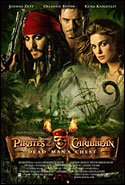
In the volume of teen garbage I’ve read in the last few weeks, reading Be More Chill was all around refreshing. Not to say that it’s that ground-breaking, everything that happens to Jeremy Heere is like every other generic teen novel situation: mean girls are mean to Jeremy, he tried to talk to object of lust only to lose her to alpha male type, his friend and he do geeky things, he goes to the mall, he fights with parents who don’t understand him and he goes to a party and feels over his head. Major variations to the archetype theme are in that: a) he actually talks to the girl regularly, b) his parents are kind of cool and he likes them and c) he gets a microchip that makes him cool.
The microchip, called a “squip,” can be bought from an Asian guy who you meet at Payless Shoe Source (not the one, or the other, but the third, in the mall across from the second Sam Goody—a joke not only about the prevalence of shitty stores, but stealing from Best in Show) and taken in the back room with a Mountain Dew. The squip can be used for things like the SAT, Jeremy’s friend’s brother did, or be used to make you not cooler—cool is an outdated form of slang, the squip says—More Chill.
Okay, like everything else in this world, the squip is an easy way out, a liposuction, a cheat sheet. It’s also a device: a what if you got to be who you want to be? How much better would that make you?
In Jeremy’s case, it works. He stands up straight. He kisses some girls and gets to touch their nipples, which is better than internet porn (now the thing the squip says girls know if you masturbate, but do all dudes get off to internet porn? It’s hard to say, because everyone I know who talks about it is about as cool as Jeremy Heere, just older.) but still things are a bit of a mess. He’s not getting the chick he likes, and not actually getting laid.
The
squip itself is a funny concept, if we stay away from the obvious abuses of technology storylines, because the squip doesn’t change Jeremy. It’s more like it goads him into being the person he wishes he would be if he weren’t such a chickenshit. The squip doesn’t secretly know what is cool and tell him to do that, it make him watch TV, for god’s sake, because from watching TV is where the squip will learn what acceptable modes of dressing and behaving are, find out which music is good, and learn to identify attractive women. This is further made interesting by the idea that the squip learns from “Dismissed,” (is this a real tv show? I know shows like this exist; I don’t know what they are called. I thought one was called elimidate.) a show where one guy goes out with two girls and eventually tells the other one to take off. Well, although the people on this show all look like they’re Bay Ridge Guidos and the women act like white trash ‘hos, the idea of basing images of beauty on them is a little bit freaky, and kind of brilliant.
And the squip doesn’t make Jeremy better looking, it just tells him to do a push up everytime he sees someone on tv with a built fit body (clearly not watching the King of Queens or the rest of the stack of fat-man-inspiring sit coms where the fat loser is married to the hot wife. Or ads for beer, potato chips or Wal-Mart, for that matter, where the marketing people don’t want the money providing mad to feel out of his league while using their product.) He has to do a sit up, and every time he sees a skinny dude with a big head he can eat an Oreo. Well, that’s not such a bad idea. I know dudes think they have it rough in high school because they’re not so fit, but there’s not a lot wrong with being skinny (my brother, in his early thirties, after almost getting in a bar fight, decided to learn to box, so maybe it haunts you forever.) but at least it’s not American-Super-Size Fat, and doing a few pushups a day is good for everyone’s body and psyche. (Maybe I’ll do ten now.) (back.) Almost all of the thoughts that come to Jeremy from the squip are pretty obvious things he would be aware of if he were more observant. If it were that easy to be cool, he could have been cool if only he were more courageous. Which is a big question, the squip tells him what to do, but most of us know what to do at most times, we just don’t have the balls to do it. And most of us know that most things people do don’t really matter: we believe in them if they have balls while doing them.
In the end, of course, it turns out that the squip tells him to do something so outrageously pony that I cringed while reading the book. Every self respecting sixteen year old would know it would be social death, yet he does it anyway, convinced it would work.
The squip the apologetic little dude, tells him to drink some more mountain dew and it will flush him straight out.
Of course a computer chip can’t actually help someone be cool, not in a novel. That wouldn’t be too sweet now would it? But still, it’s well written and observed. I appreciated its lack of condescension. I think
Ned Vizzini is pretty young so probably has a better grip on what it is to be fifteen than me, but at least teenagers aren’t total morons, except for the whole thinking anyone on Dismissed could be attractive.
there's a lot of pop culture references here, to other books of the sort, like mia in
the princess diaries he's a loser who gets a magic out. the mountain dew/marketing schtick that the squip is a beta made by Sony sounds like
Syrup by Maxx Barry (it also has the cute mtv writerlyness about it. none of those heavy handed literary references that i'm getting in all the teen books that the writers leave as clues to other adult readers to indicate that they are secretly not as bad as a teen novelist.)
 after all this teen novel reading, I’ve finally fallen for one. I’m not sure if it means I’m a hopeless romantic, or if all this time I’ve been reading serious dick-lit like Murakami and James Joyce, I should have been reading Chick-lit, but I am in love with a character in a book. Mind you, I’ve been in love with characters in books before, I think. I know I was in love with Peter Pan. I think Marcus Flutie, the love interest of the narrator, Jessica Darling, of Sloppy Firsts, is a little like Peter Pan. Elusive, sexy, a little too unavailable.
after all this teen novel reading, I’ve finally fallen for one. I’m not sure if it means I’m a hopeless romantic, or if all this time I’ve been reading serious dick-lit like Murakami and James Joyce, I should have been reading Chick-lit, but I am in love with a character in a book. Mind you, I’ve been in love with characters in books before, I think. I know I was in love with Peter Pan. I think Marcus Flutie, the love interest of the narrator, Jessica Darling, of Sloppy Firsts, is a little like Peter Pan. Elusive, sexy, a little too unavailable. 



















